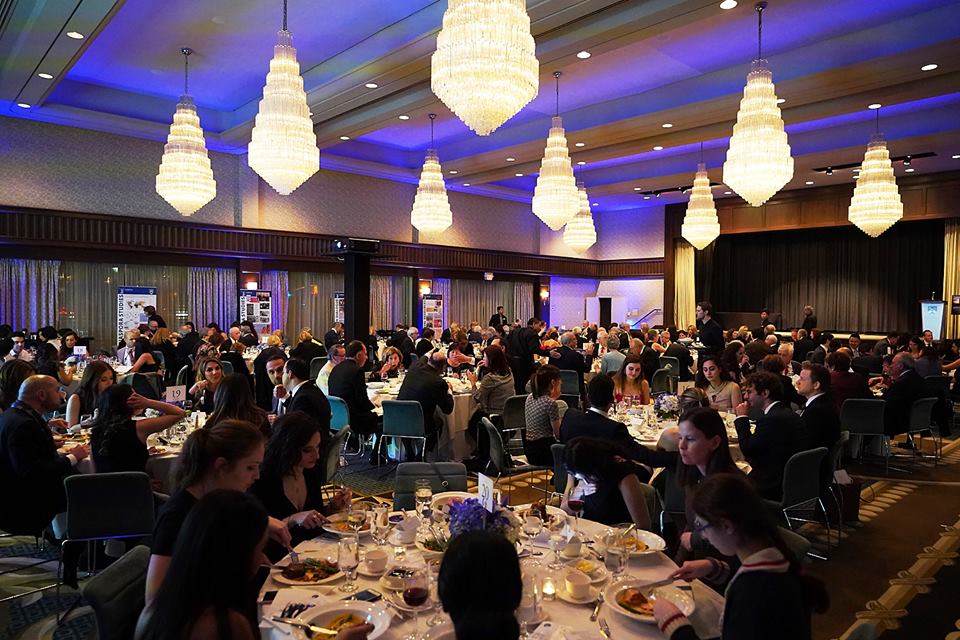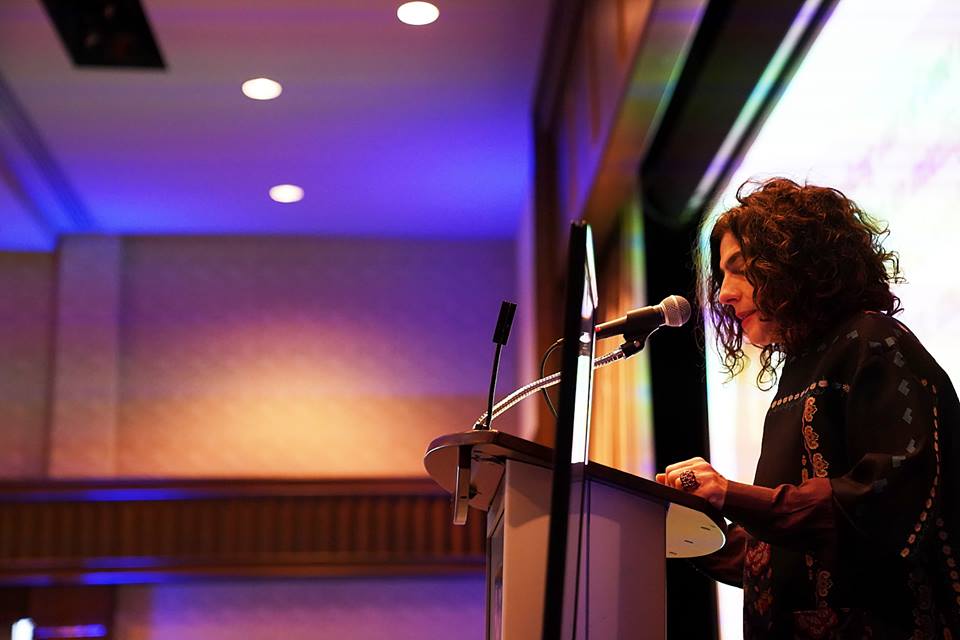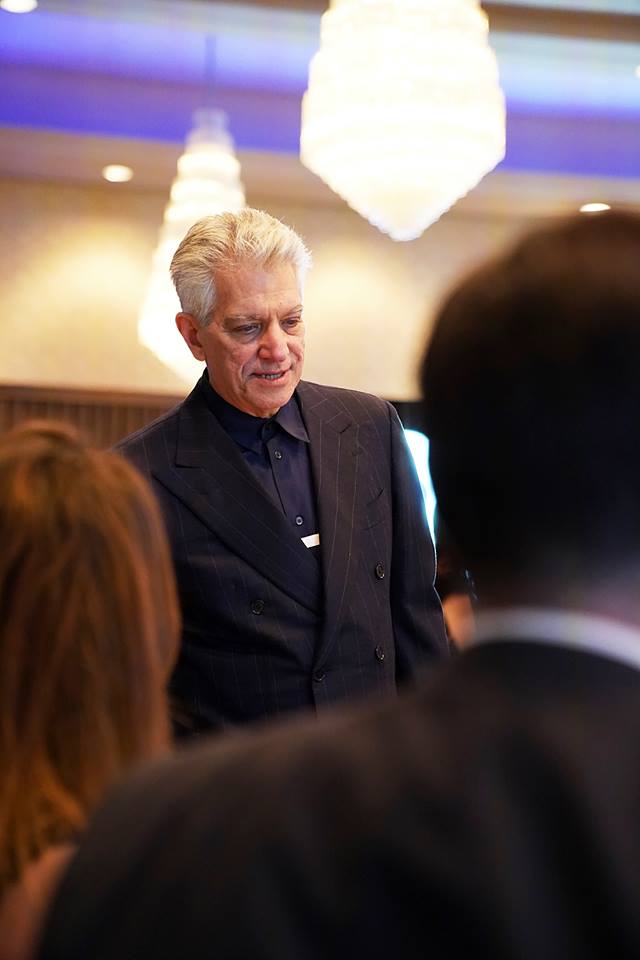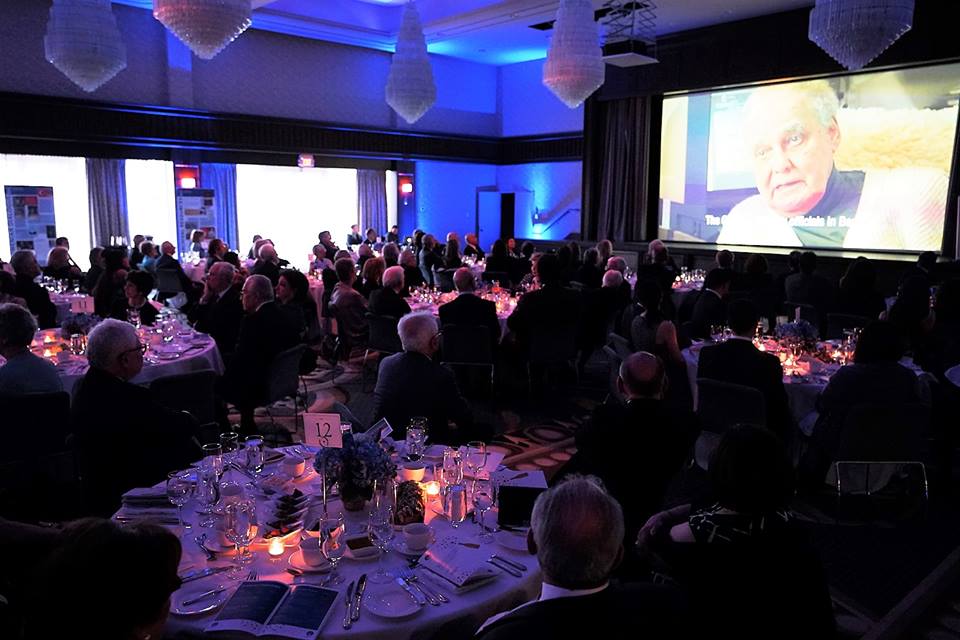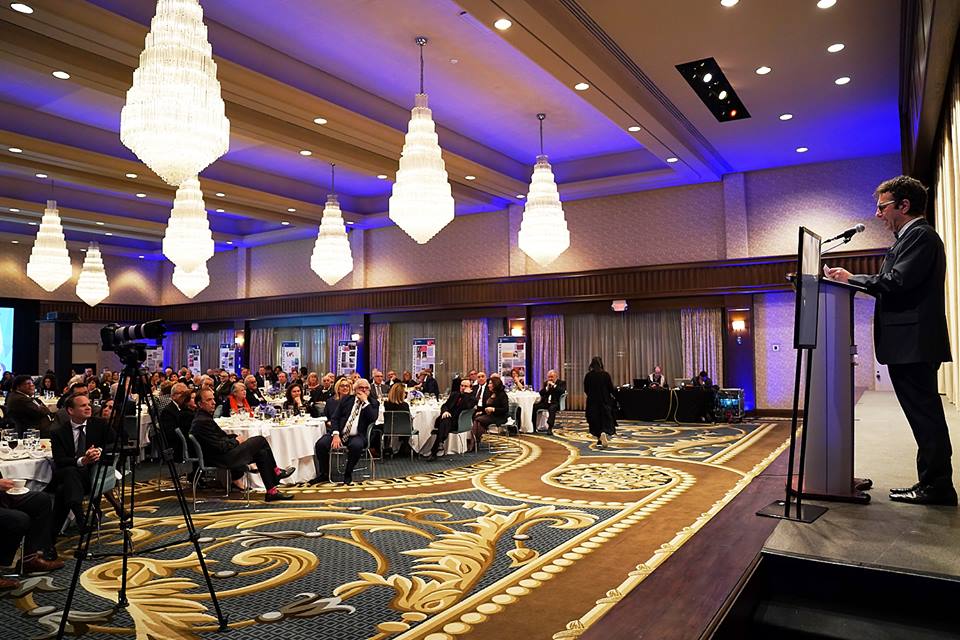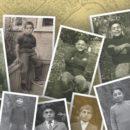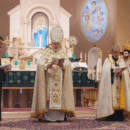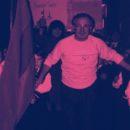Zoryan Institute Gala attendees at The Granite Club in Toronto, April 7, 2018.
By: Karin Saghdejian
(TORONTO)- Zoryan Institute’s 35 years of scholarly and educational work towards issues of human rights, genocides and diasporic existence was celebrated on April 7, 2018, during a gala event in Toronto.
The Granite Club on Bayview hosted academics, friends and supporters for an evening of acknowledgment, appreciation and support of the invaluable work of an Institute that over the years has become the most respected centre of scholarship and documentation of our contemporary issues.
After appetizers and champagne were served, Award-winning actress, director and producer Arsinée Khanjian, a Corporate Board Member of Zoryan, took to the stage and welcomed the guests. She reminisced how 33 years ago a meeting with Kourken and Lena Sarkissian introduced her to Zoryan’s work- at the time documenting Armenian Genocide survivor testimonies. She mentioned that her and her husband Atom Egoyan’s conviction in the Institute’s mission grew stronger over the years, leading the director to dedicate the film Ararat to Zoryan’s 20th anniversary.
Khanjian said: “If I could sum up the Institute’s greatest achievements in one word, it would be “impact”. The Institute’s work in education, documentation, and publication has influenced academics, media representatives, and policy makers worldwide,” leading not only to confirm the incontestability of the Armenian Genocide but to also lead the German Bundestag to pass a resolution on accepting the complicity of Germany in crimes of genocide by the Ottoman government.
“Now, she said, we face new forces that shape our reality and pose a danger to humankind, like population growth, artificial intelligence, climate change and independent Armenia- all new forces that will shape our reality need to be understood.”
Emmy winning filmmaker Theodore Bogosian, whose “An Armenian Journey” made television history in 1988 by becoming the first national primetime broadcast in the US to investigate the Armenian Genocide, thanked Zoryan, which introduced him to Marian Davis, a survivor after whom the documentary was made. Emmy winning filmmaker Ted Bogosian.
Twenty years after the PBS film was broadcast, Bogosian was inspired to consider a sequel after two prominent genocide scholars, Vahakn Dadrian and Taner Akcam, in a book titled entitled “Judgment at Istanbul” (2011), analysed the post-genocide trial records featured in the first episode thus vindicating the documentary.
Then “Vindication: An Armenian Journey 2” was screened for the first time. With flashbacks to the first documentary where Marian Davis and Bogosian visit Eastern Turkey and scholars such as Dardrian, Akcam, Yair Auron, Wolfgang Gust and Stefan Ihrig and activists like Cem Ozdemir weighing in on the authenticity of the documents found in the Ottoman archives, the documentary once again vindicates Davis’ memories and the case of a genocide.
Following the film, the Institute’s President, Kourken (Greg) Sarkissian thanked all the scholars, supporters and volunteers who have made the Institute a success story. Sarkissian was then joined by special guest Rakel Dink of the Hrant Dink Foundation, the widow of Turkish journalist and champion of Human Rights, Hrant Dink, who came from Istanbul for this occasion to pay tribute to a select group of people who have made a profound impact in shaping Zoryan into the respected scholarly Institute that it is today.
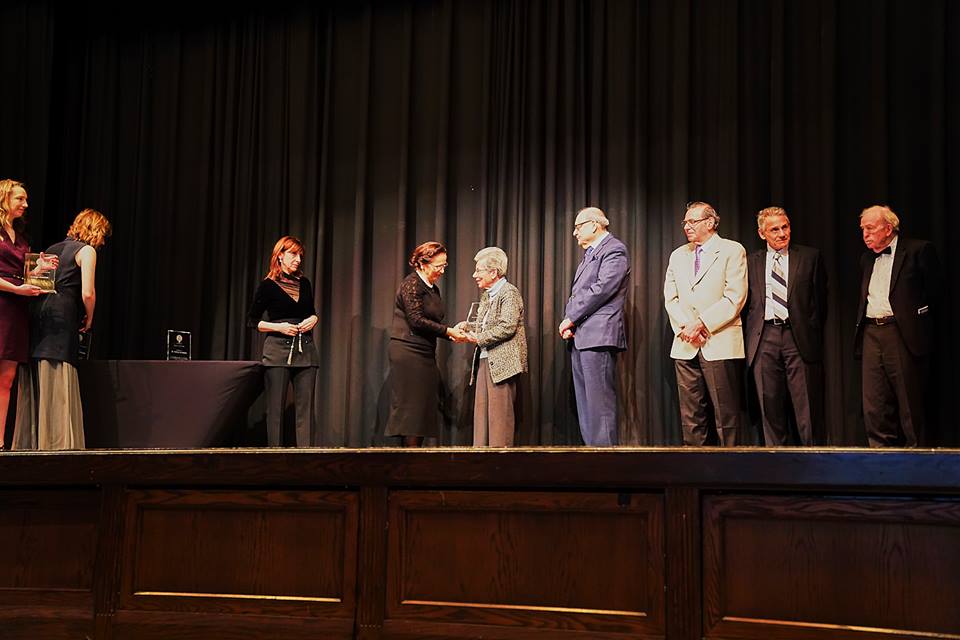
Zoryan Academic and Corporate Board of directors on the stage during Institute’s Gala on April 17, 2018.
Awards of recognition were presented to Dr. Varouj Aivazian, Dr.Joyce Apsel, Dr. Levon Chorbajian, Dr. Vahakn Dadrian, Dr. Herbert Hirsch, Arsinée Khanjian, Lena Sarkissian, George Shirinian, Dr. Roger Smith, Dr. Henry Theriault, Dr. Khachig Tololyan and Dr. Shake Toukmanian.
The evening also included heartfelt speeches from Dr. Roger W. Smith, Chairman of the Academic Board, who credited Wolfgang Gust’s “The Armenian Genocide: Evidence from the German Foreign Office Archives, 1915-1916” as key material which helped the German Bundestag to recognize German complicity in the Armenian Genocide. Dr. Smith thanked all donors and the staff who made this huge scholarly work possible.
Dr. Varouj Aivazian, Chairman of the Corporate Board, spoke how we all, himself included, share similar stories of survival, and thanked Bogosian for giving voice to that generation of survivors who suffered in silence unnoticed. He also thanked Zoryan’s Executive Director Shirinian for his long time dedicated service and Sarkissian for being “the fire that keeps us going”.
“I am confident that our shared vision as embodied by the objectives of the Zoryan Institute will last far beyond our individual life spans. With your support, we can ensure the long-run viability of the Institute and the realization of its goals,” commented Aivazian.
The gala was enhanced by musical performances, silent auction and an elaborate dinner.
The evening’s closing remarks came from one of the most celebrated filmmakers of our time and a long-time Zoryan Institute supporter, Atom Egoyan, who put Zoryan’s work in historical and political perspective, peppered with personal life details that explained his strong commitment to the Institute’s mission.
He related his early upbringing with limited knowledge of his Armenian identity and history on the west coast of Canada, then in Toronto as a young political science student whose contacts with the Armenian Students Association became defining moment in his self discovery.
Then he reminisced how his meeting with young Arsinee Khanjian who became his wife and later, the couple’s involvement with newly formed Zoryan would change the trajectory of their life and work.
Egoyan then recounted how Zoryan Institute was conceived out of the deep need of a group of Armenian intellectuals as a forum for free and critical thinking about Armenian issues through analytical and scholarly means. Following the formative years, besides the genocide, the Institute found itself dealing with 3 major events that shook the Armenian world: the Sumgait Massacres, the Spitak earthquake, and Armenian Independence. He concluded that the Zoryan Institute rose extraordinarily to fulfill this mission through ground breaking publications about detrimental events in the life of the Armenian nation.
Referring to Zoryan’s monumental work on different levels and spheres, Egoyan said that Zoryan, through its Genocide and Human Rights University Program (GHRUP), which has taught almost 500 students from 41 countries, has created “a most radical and unprecedented dialogue” alongside other initiatives such as genocide conferences, the oral history project (recording some 700 survivor accounts), dozens of published scholarly works and over 540 peer-reviewed articles on transnational and diasporic issues.
He then expanded on George Orwell’s reflection on the inaccurate and biased reporting of the events of the Spanish Civil War, which led the English writer to believe that the very concept of objective truth might fade out of the world given the fact that history is mostly written according to various party lines.
“Armenians had of course seen objective truth fading away decades before Orwell’s observations,” said Egoyan, adding, “We must understand that in a world of fake news and fiercely competing agendas, Zoryan has branded itself as a place where issues of atrocity and its state-sponsored narratives have been analyzed for 35 years.” In the face of this monumental lies the Institute has “brilliantly triumphed in resisting this tendency though its unique prism, dealing with the first mediated major human right catastrophe of modern time,” he concluded.
He termed the Institute’s monumental amount of meticulous work throughout the years as “our measured response”. “Our grandparents could never have had a carefully measured response; it is something we have had to learn, something we have had to develop,” he added.
Egoyan saw that humanity will face a lot of challenges in the near future such as human rights issues, artificial intelligence, climate change and shifts in world population.
“These monumental issues will test the limits of what we might call our human capital. Our ability to feel empathy and extend ourselves to others” he said.
Going into the future, he wished to see Zoryan as an “intellectual empathy machine, extending its practices to a myriad of new issues but always through the prism of our collective experience.”
The celebratory evening wrapped up with guests congratulating Zoryan’s staff and scholars for an incredible 35 years of service documenting, analysing and elevating the human condition.

